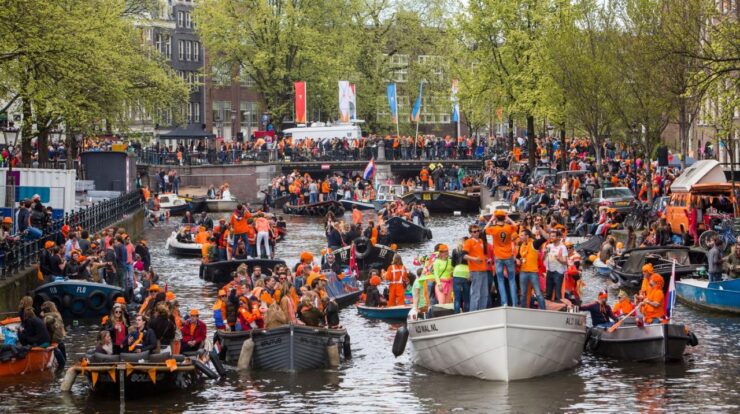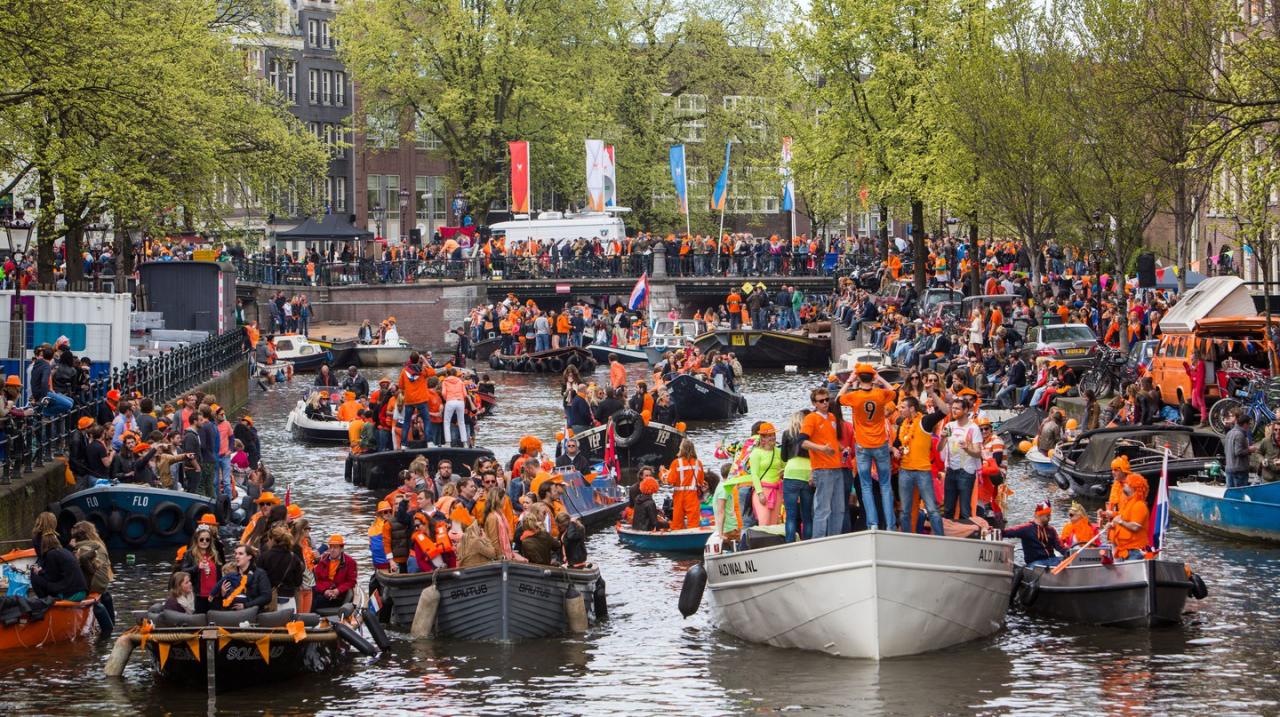
Kingsday netherlands – As Koningsdag takes center stage in the Netherlands, this opening passage beckons readers with vivid descriptions and rich insights into a world of vibrant traditions and national pride. Koningsdag, a day dedicated to the celebration of the Dutch monarchy, has evolved into a cultural phenomenon that captivates the hearts of the nation.
This festival, steeped in history and adorned with unique customs, offers a captivating glimpse into the Dutch way of life. From the vibrant orange attire to the lively street parties, Koningsdag is a testament to the Netherlands’ enduring spirit and love for its royal family.
Cultural Significance of Koningsdag
Koningsdag, or King’s Day, is a national holiday in the Netherlands celebrated on April 27th. It commemorates the birthday of King Willem-Alexander and is a day of great cultural significance for the Dutch people. The origins of Koningsdag date back to 1885, when it was first celebrated as the birthday of Queen Wilhelmina.
Over the years, Koningsdag has evolved into a day of national unity and celebration. It is a time for the Dutch people to come together and enjoy a variety of festivities, including music, dancing, and street parties. The festival is also a time to reflect on the role of the Dutch monarchy in shaping the country’s history and culture.
Festivities and Activities, Kingsday netherlands
Koningsdag is a day of non-stop festivities and activities throughout the Netherlands. The main events take place in Amsterdam, where the royal family traditionally attends a variety of events, including a boat parade on the canals.
| Event | Location | Activities | Significance |
|---|---|---|---|
| Koningsdag Concert | Museumplein, Amsterdam | Live music performances, food stalls, and a festive atmosphere | Celebrates Dutch music and culture |
| Vrijmarkt | Amsterdam city center | A giant flea market where people sell their used goods | Promotes sustainability and community spirit |
| Canal Parade | Amsterdam canals | A procession of decorated boats showcasing Dutch creativity and culture | Represents the city’s maritime heritage and artistic expression |
The color orange is the official color of Koningsdag and is prominently displayed everywhere during the festival. It is a symbol of the Dutch royal family and is said to bring good luck.
Economic Impact and Tourism
Koningsdag has a significant economic impact on the Netherlands. The festival attracts millions of tourists from around the world, who spend money on hotels, restaurants, and retail stores. In 2019, Koningsdag generated an estimated €700 million in revenue for the Dutch economy.
The festival also provides a boost to the hospitality industry, as many bars and restaurants offer special Koningsdag menus and promotions. The festival is also a major opportunity for small businesses to sell their products and services.
Last Word: Kingsday Netherlands

Koningsdag stands as a beacon of Dutch culture, showcasing the country’s rich heritage, vibrant traditions, and unwavering national unity. As the festivities conclude, the memories created and the bonds forged serve as a reminder of the enduring spirit that unites the Netherlands.
The festival’s impact extends beyond its celebratory nature, leaving a lasting legacy on the nation’s economy, tourism, and environmental consciousness. Koningsdag continues to evolve, embracing innovation and sustainability, ensuring its relevance and appeal for generations to come.
FAQ Corner
What is the significance of orange during Koningsdag?
Orange is the official color of the Dutch royal family, the House of Orange-Nassau, and has become synonymous with Koningsdag celebrations.
How long has Koningsdag been celebrated?
Koningsdag has been celebrated since 1885, originally known as Queen’s Day to honor Queen Wilhelmina’s birthday.
What are some of the popular activities during Koningsdag?
Koningsdag festivities include street parties, flea markets, music performances, and the traditional vrijmarkt (free market), where people can sell their used belongings.